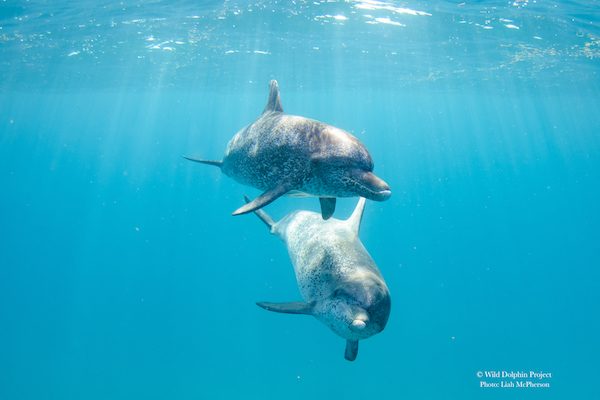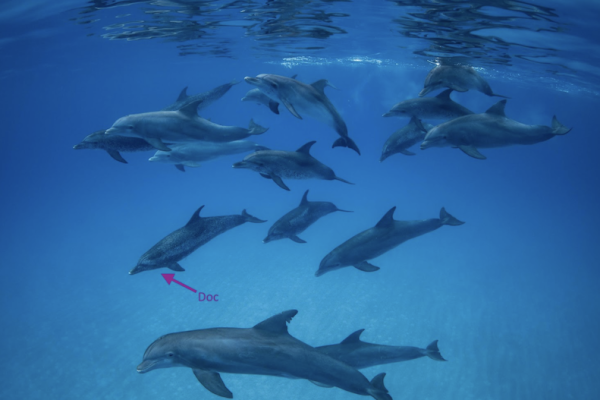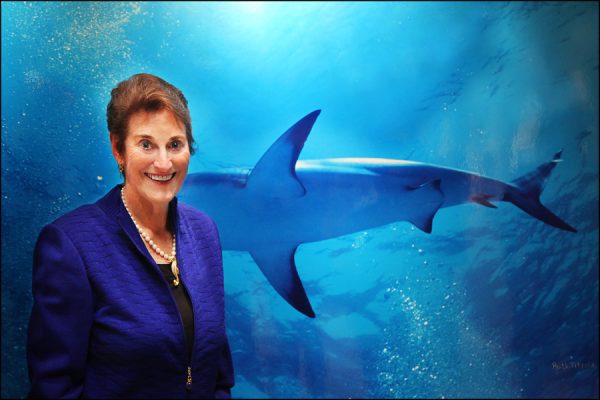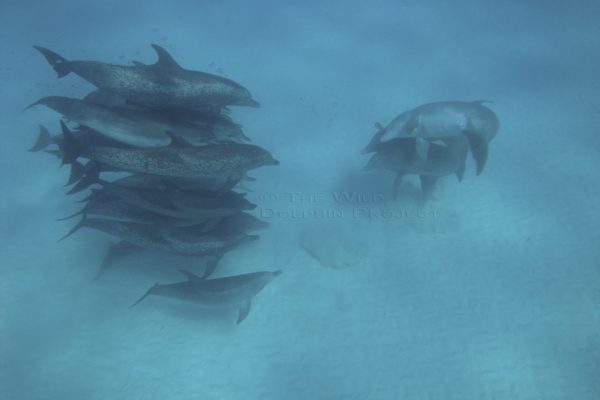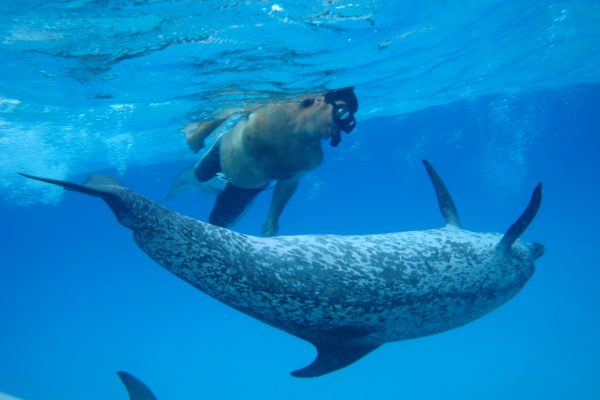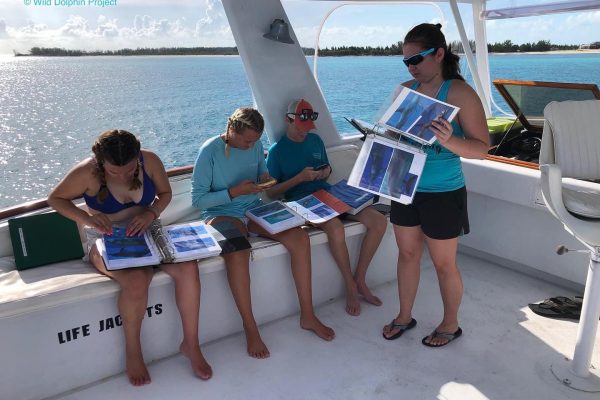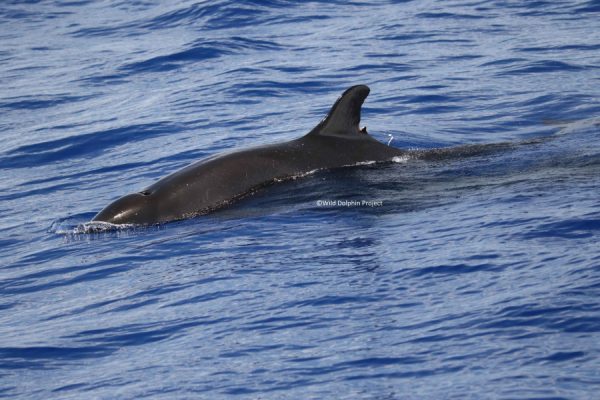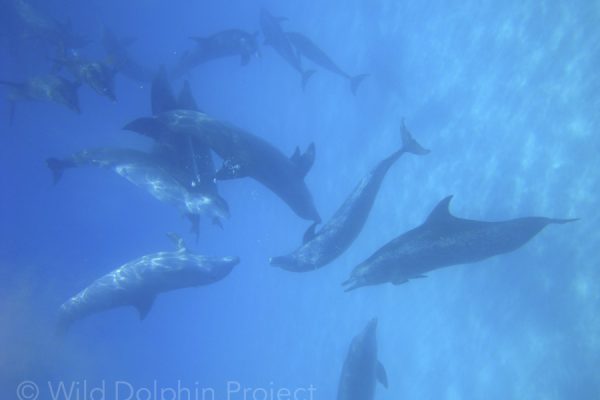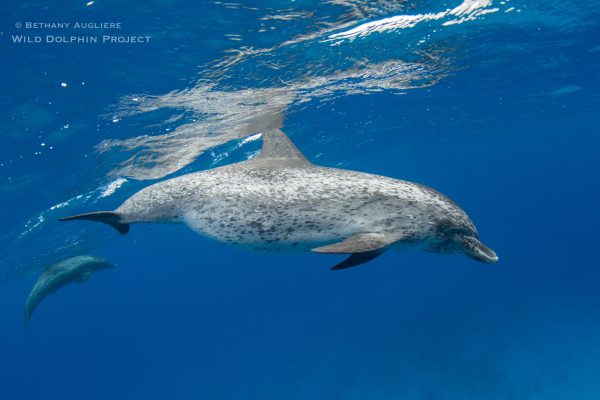Updates on Lamda
In September 2018 a male Atlantic spotted dolphin named Lamda, who we’ve known since 2013 as a young juvenile, stranded far from his home in Bimini. He was rehabilitated in an Animal Rescue Centre in the Bahamas, where they looked after him until he was recovered and ultimately, released back
Animal Behavior: interspecies versus intraspecific interactions
In the Bahamas, the Wild Dolphin Project led by Dr. Denise Herzing, studies both the common bottlenose dolphin (Tursiops truncatus) and the Atlantic spotted dolphin (Stenella frontalis), who coexist on the sandbank. This means they are sympatric — occurring within the same geographic range. While the two species eat
Meet the team: Board Member Edition
Meet the team: Board Member Edition Ruth Petzold always loved the ocean. She grew up in Michigan, but spent her summers in New Hampshire, snorkeling and searching in tidal pools for clams, snails and sea stars. She even collected critters from the beach and sneaked them back to her grandfather’s
6 Awesome Facts About Spotted Dolphins in the Bahamas
Denise Herzing, Ph.D., founder and director of the Wild Dolphin Project, has been studying Atlantic spotted dolphins (Stenella frontalis) in the Bahamas since 1985. Since that time, she’s learned a lot about their social behavior, communication, feeding behavior, ecology, and social structure. Dolphins are mammals, which means they breathe air
Meet the Team: Captain Pete (Returns!)
After 7 years away, Captain Pete has returned to the Wild Dolphin Project! Captain Pete returns to the project with decades of experience, both with us and other vessels, holding a U.S. Coast Guard 1600-ton master license, open oceans. He filled in for our last two trips of the 2022
Pesky Remoras
The Wild Dolphin Project was started by Dr. Denise Herzing back in 1985. Since then Dr. Herzing, along with her colleagues and graduate students, has put out multiple peer reviewed research papers on the behavior, acoustics, and ecology of the two species we study in the Bahamas: the Atlantic spotted
Interning at the Wild Dolphin Project
For current students, whether that’s as an undergraduate or graduate student, we offer an internship program to gain hands-on experience working as a dolphin field biologist! So what’s it like and what can you expect to learn? Read on. Heading to Bahamas Interns arrive to greet the crew at our
Bonus Sightings : False Killer Whale or Pilot Whale
On our most recent trip to the Bahamas, we had the incredible chance to view a relatively rare marine mammal — the false killer whale (Pseudorca crassidens). These sea wolves are social, intelligent, hunt in packs, and are found in deep offshore waters. They are also entirely black. Adult females
Studying Behavior: From Observing To Understanding
At the Wild Dolphin Project, we’ve studied everything from dolphin communication, to social structure, genetics and ecology. One of the most common fields we cover is animal behavior, to examine topics such as interspecies aggression, feeding, and even teaching. In addition to gaining insight into the behavior of a species,
WDP in the Bahamas: A review
We know a lot of you have followed our work for awhile now — some of you since the very beginning — and some of you have even been out with us on research expeditions. For the start of the new year, we’d like to provide a review of what

